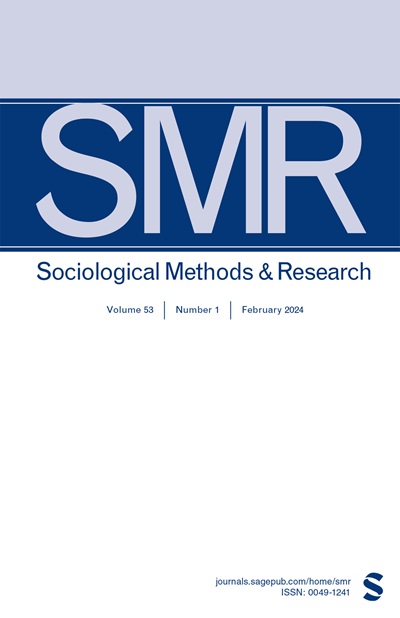生成人工智能满足开放式调查回应:研究参与者使用人工智能和同质化
IF 6.5
2区 社会学
Q1 SOCIAL SCIENCES, MATHEMATICAL METHODS
引用次数: 0
摘要
生成式人工智能(AI)工具的日益普及对在线调查和实验的数据质量提出了新的挑战。本研究考察了参与者使用大型语言模型来回答开放式调查问题,并描述了人类与大型语言模型(LLM)生成的文本响应的经验趋势。在一项原始调查中,从一个流行的社会科学研究对象在线平台招募的研究参与者中,34%的人表示使用法学硕士来帮助他们回答开放式调查问题。将三个chatgpt前的人类书面回答与法学硕士生成的文本进行模拟比较,发现法学硕士的回答更加均匀和积极,特别是当他们在敏感问题中描述社会群体时。这些同质化模式可能掩盖了人类受试者之间态度和信仰的重要潜在社会差异,引起了对数据有效性的担忧。我们的研究结果揭示了参与者在在线研究中使用法学硕士的范围和潜在后果。本文章由计算机程序翻译,如有差异,请以英文原文为准。
Generative AI Meets Open-Ended Survey Responses: Research Participant Use of AI and Homogenization
The growing popularity of generative artificial intelligence (AI) tools presents new challenges for data quality in online surveys and experiments. This study examines participants’ use of large language models to answer open-ended survey questions and describes empirical tendencies in human versus large language model (LLM)-generated text responses. In an original survey of research participants recruited from a popular online platform for sourcing social science research subjects, 34 percent reported using LLMs to help them answer open-ended survey questions. Simulations comparing human-written responses from three pre-ChatGPT studies with LLM-generated text reveal that LLM responses are more homogeneous and positive, particularly when they describe social groups in sensitive questions. These homogenization patterns may mask important underlying social variation in attitudes and beliefs among human subjects, raising concerns about data validity. Our findings shed light on the scope and potential consequences of participants’ LLM use in online research.
求助全文
通过发布文献求助,成功后即可免费获取论文全文。
去求助
来源期刊

Sociological Methods & Research
Multiple-
CiteScore
16.30
自引率
3.20%
发文量
40
期刊介绍:
Sociological Methods & Research is a quarterly journal devoted to sociology as a cumulative empirical science. The objectives of SMR are multiple, but emphasis is placed on articles that advance the understanding of the field through systematic presentations that clarify methodological problems and assist in ordering the known facts in an area. Review articles will be published, particularly those that emphasize a critical analysis of the status of the arts, but original presentations that are broadly based and provide new research will also be published. Intrinsically, SMR is viewed as substantive journal but one that is highly focused on the assessment of the scientific status of sociology. The scope is broad and flexible, and authors are invited to correspond with the editors about the appropriateness of their articles.
 求助内容:
求助内容: 应助结果提醒方式:
应助结果提醒方式:


